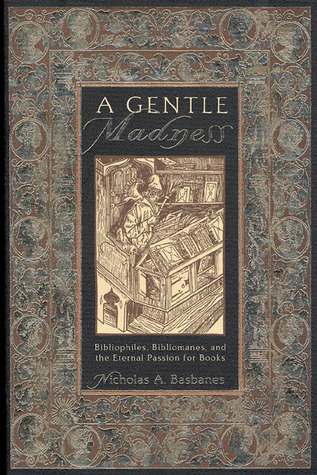
The Man Who Loved Books Too Much: The True Story of a Thief, a Detective, and a World of Literary Obsession
Book Description
A man's obsession with rare books spirals into a thrilling game of cat and mouse, leading him down a dark path of theft and betrayal. When a dedicated detective dives into the underbelly of the literary world, the lines between passion and crime blur, revealing a labyrinth of secrets that could shatter lives. As the stakes rise, the love for books becomes a dangerous addiction, trapping both the thief and the investigator in a suspenseful chase for truth. With the clock ticking and trust eroding, will justice prevail, or will the allure of the written word win out in the end?
Quick Book Summary
"The Man Who Loved Books Too Much" by Allison Hoover Bartlett plunges readers into the fascinating world of rare book collecting, where passion for the written word intertwines with criminality. The book centers on John Charles Gilkey, an obsessive bibliophile who steals rare books not for profit, but out of a narcissistic desire to own cultural treasures. His acts of theft create ripples through the tight-knit community of booksellers and collectors. At the other end stands Ken Sanders, a rare book dealer-turned amateur detective, determined to bring Gilkey to justice. Through meticulous investigation and psychological insight, Bartlett explores themes of obsession, morality, and the grey areas where love of art becomes destructive. As Bartlett shadows both men, she exposes the complexities of their motivations, making her book a nuanced meditation on the fine line between admiration and obsession.
Summary of Key Ideas
Table of Contents
Obsession and the Allure of Rare Books
At its heart, "The Man Who Loved Books Too Much" delves into the intoxicating world of rare book collecting, a subculture filled with deep passion, immense knowledge, and, at times, dangerous obsession. Allison Hoover Bartlett introduces readers to collectors whose lives revolve around books—not just for their content, but as precious artifacts. This devotion to physical books sets the stage for both reverence and temptation, revealing how the allure of owning something rare can push individuals beyond legal and ethical boundaries.
The Psychology Behind Book Theft
Central to the story is John Charles Gilkey, a man whose craving for rare books is insatiable. Unlike most thieves, Gilkey is driven not by profit but by the status and identity these objects bestow. His methodical, often audacious thefts are acts of desire, born out of a profound belief that he deserves these treasures. Bartlett examines the roots of Gilkey’s obsession, considering both personal psychology and broader social factors. In portraying Gilkey, the book forces readers to question where admiration ends and destructive compulsion begins.
The Tight-Knit Community of Rare Book Dealers
On the other side stands Ken Sanders, a dedicated rare book dealer from Salt Lake City who becomes the informal investigator pursuing Gilkey. Sanders embodies the ethical backbone of the rare book community, rallying fellow dealers and law enforcement to track and eventually trap the thief. Bartlett chronicles Sanders’ efforts, highlighting the camaraderie, expertise, and vulnerability inherent in a world where passion and trust often outweigh security measures.
The Pursuit of Justice in a Grey Moral World
Bartlett’s narrative draws readers into the moral haze surrounding the pursuit of rare and valuable objects. While Gilkey’s actions are criminal, his motivations—rooted in love for literature—complicate the notion of justice. Sanders, too, is portrayed with nuance, revealing his empathy and respect for Gilkey’s passion, even as he seeks to uphold the law. The book skillfully raises questions about cultural value, ownership, and whether love for beauty can excuse, if not justify, bad behavior.
The Thin Line Between Admiration and Obsession
By structuring the story as a suspenseful cat-and-mouse game, Bartlett underscores the emotional stakes of obsession—for the criminal, the investigator, and the broader book-loving community. Through interviews, personal reflections, and immersive reporting, she crafts a story that is as much about the transformative power of books as it is about crime and punishment. In the end, "The Man Who Loved Books Too Much" offers a poignant meditation on passion, ethics, and the delicate balance between reverence and possession.
Download This Summary
Get a free PDF of this summary instantly — no email required.





